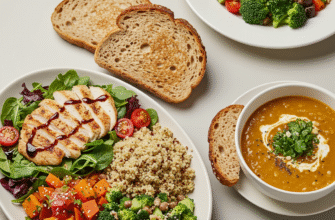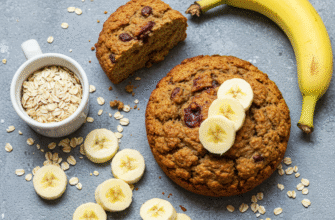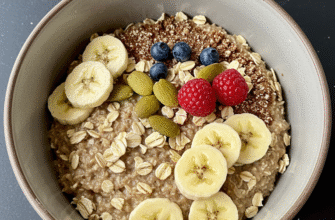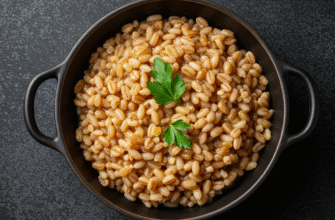Walk down any supermarket aisle, and you’re bombarded. Bright packages shout about convenience, flavour bursts, and quick fixes for hunger. These are the hallmarks of processed foods, items altered from their natural state, often packed with extra salt, sugar, fats, and a list of ingredients you might need a chemistry degree to decipher. While they offer undeniable convenience in our fast-paced lives, making a conscious effort to eat less processed stuff can unlock a surprising range of benefits, leading to a feeling of greater vitality and connection with what fuels your body.
It’s not about aiming for perfection or completely banning favourite treats. It’s about shifting the balance, tilting your plate more towards foods that are closer to how nature presented them. Think vibrant fruits and vegetables, whole grains like oats and brown rice, lean proteins like chicken or beans, and healthy fats from nuts and seeds. The contrast lies in comparing these to, say, a pre-packaged microwave meal, a sugary cereal bar, or a bag of intensely flavoured crisps.
Unlocking Nutrient Powerhouses
One of the most significant advantages of reducing processed food intake is simply getting more nutritional bang for your buck. Whole foods are typically bursting with the vitamins, minerals, and fiber our bodies crave. Processing, on the other hand, can strip away these vital components. For example, whole grains contain the bran and germ, rich in fiber, B vitamins, and minerals. When refined into white flour (common in many processed breads, pastries, and snacks), much of this goodness is lost. Similarly, fruits are packed with vitamins and antioxidants, but turning them into sugary fruit snacks or drinks often means losing fiber and adding heaps of sugar.
By focusing on whole foods, you naturally increase your intake of essential nutrients that support everything from energy production to immune function. It’s like upgrading your body’s fuel from standard to premium – you get more efficient performance and better long-term maintenance.
The Fiber Factor: Feeling Full and Satisfied
Ever eat a large processed meal or snack only to feel hungry again surprisingly soon? This often happens because highly processed foods lack sufficient fiber. Fiber is a type of carbohydrate the body can’t digest, but it plays crucial roles. Found abundantly in fruits, vegetables, legumes, and whole grains, fiber adds bulk to your meals. This helps you feel fuller for longer after eating, potentially reducing the urge to snack constantly or overeat later.
Furthermore, fiber is fantastic for digestive health. It helps keep things moving smoothly through your system, promoting regularity. A diet rich in fiber from whole food sources contributes to a happier gut, which is increasingly being recognised as central to overall well-being. Processed foods, often low in fiber, don’t offer these same benefits and can sometimes contribute to sluggish digestion.
Dodging Hidden Sugars and Sodium
Processed foods are notorious hiding places for added sugars and sodium, often in surprising amounts and unexpected products. You might expect sugar in cakes and biscuits, but it also lurks in savoury sauces, salad dressings, yogurts, breakfast cereals, and even bread. Consuming excess added sugar can lead to energy spikes followed by crashes, contribute to cravings, and over time, make it harder to manage your weight effectively.
Similarly, sodium (salt) is used extensively in processed foods as a flavour enhancer and preservative. While we need some sodium, the amounts found in many canned soups, frozen dinners, processed meats, and salty snacks far exceed recommendations. Reducing your intake of these items can help your body maintain better fluid balance – potentially leading to less bloating – and supports general wellness.
Verified Insight: Whole, unprocessed foods like fruits, vegetables, and whole grains are primary sources of dietary fiber. Fiber aids digestion, helps promote feelings of fullness, and is a key component of a balanced eating pattern. Reducing reliance on highly processed options naturally increases fiber intake.
Rediscovering Authentic Taste
Highly processed foods often rely on artificial flavours, flavour enhancers, excessive salt, and sugar to make them palatable (or even hyper-palatable, meaning hard to stop eating). When your diet is dominated by these intense, often artificial tastes, your palate can become accustomed to them. The subtle, complex flavours of natural foods might seem bland in comparison.
However, as you reduce your intake of processed items, something wonderful happens: your taste buds recalibrate. You start to appreciate the natural sweetness of a ripe strawberry, the earthy depth of roasted vegetables, the satisfying chewiness of whole grains, or the simple deliciousness of grilled fish with herbs. Eating becomes less about experiencing an artificial flavour explosion and more about savouring the genuine taste of real food. This can lead to a much richer and more satisfying relationship with eating.
Gaining Control and Awareness
Choosing less processed foods inherently gives you more control over what you’re putting into your body. When you cook a meal from scratch using whole ingredients, you know exactly what’s in it. You control the amount of salt, sugar, and fat. You avoid the long list of preservatives, colourings, and additives found in many packaged goods.
This doesn’t mean you need to prepare every single meal from basic components. It can be as simple as choosing plain yogurt and adding your own fruit instead of buying a pre-sweetened variety, or opting for whole-grain bread over white, or snacking on nuts and seeds instead of a processed cereal bar. Reading ingredient labels becomes insightful – you start noticing which products have simple, recognizable ingredients versus those with lengthy, chemical-sounding lists. This awareness empowers you to make more informed choices.
Small Steps, Big Impact
Making the switch doesn’t require a dramatic overhaul overnight. Start small. Try incorporating one extra serving of vegetables into your day. Swap sugary cereal for oatmeal with fruit. Choose water or unsweetened tea over sugary sodas. Pack an apple and some nuts for a snack instead of grabbing crisps. Focus on adding more whole foods rather than solely on restricting processed ones.
Important Note: Be mindful of “health washing.” Some processed foods are marketed as healthy options but may still contain significant amounts of added sugar, sodium, or refined ingredients. Always check the nutrition facts panel and ingredient list for a clearer picture.
Over time, these small changes add up. You might notice you have more sustained energy throughout the day. You might find your digestion feels better. You might even discover a newfound enjoyment in cooking and eating simple, flavourful meals. Eating less processed food isn’t about deprivation; it’s about embracing a way of eating that nourishes your body, delights your taste buds, and leaves you feeling genuinely good.
Ultimately, reducing processed foods is a journey towards appreciating food in a more natural state. It’s about fuelling your body effectively and rediscovering the simple pleasure of real flavour. The benefits extend beyond just numbers on a scale; they contribute to an overall sense of well-being and vitality that makes the conscious choice well worth the effort.








